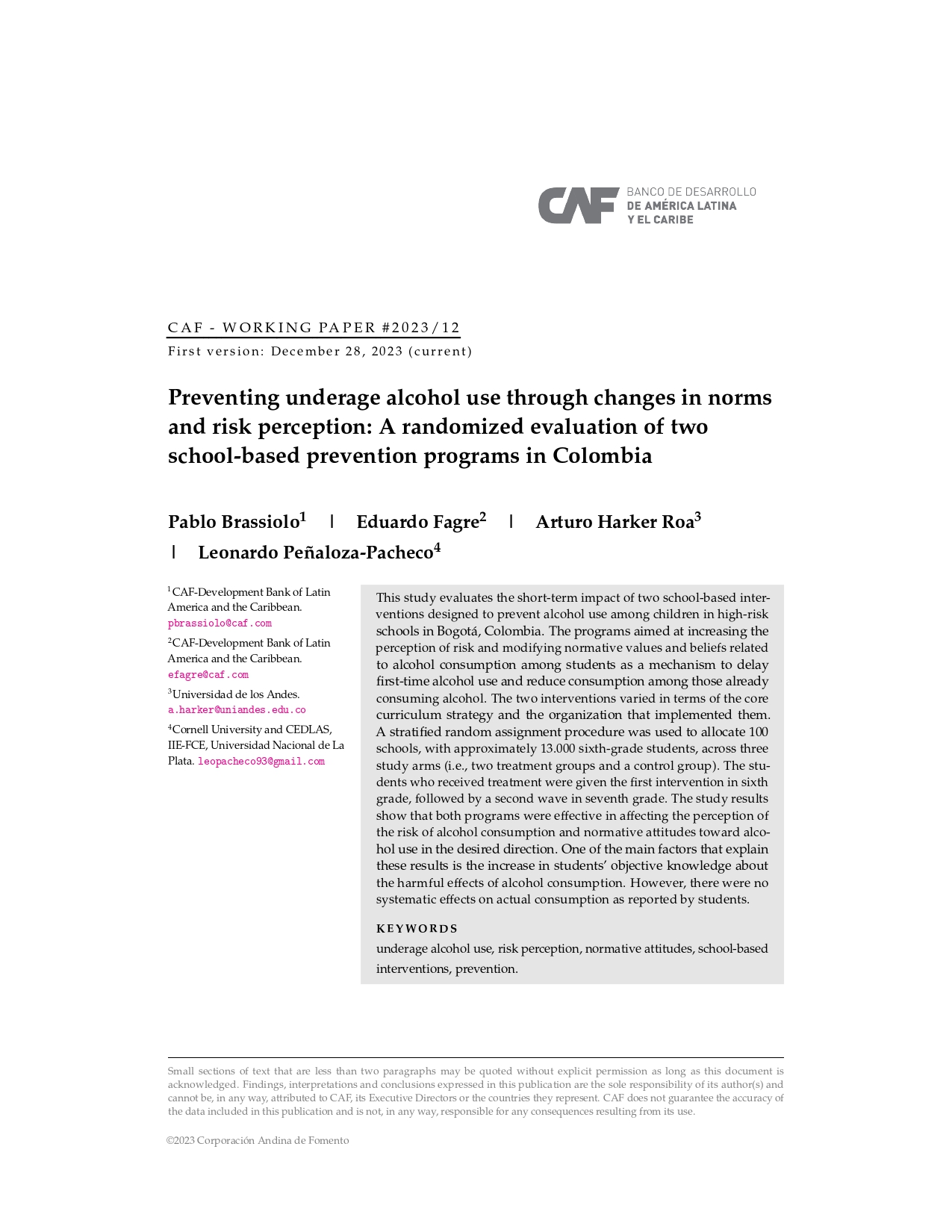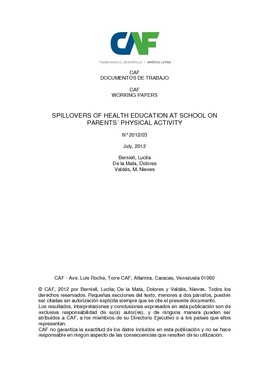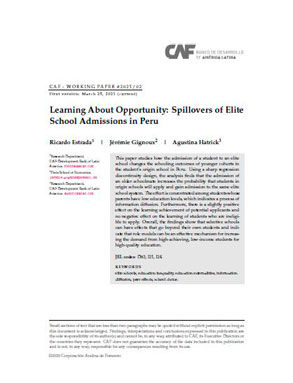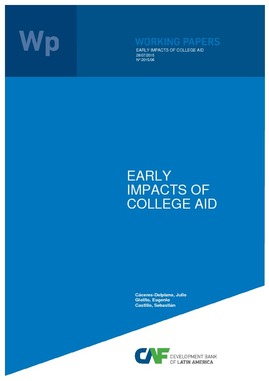Preventing underage alcohol use through changes in norms and risk perception: A randomized evaluation of two school-based prevention programs in Colombia
Resumo
This study evaluates the short-term impact of two school-based inter ventions designed to prevent alcohol use among children in high-risk schools in Bogotá, Colombia. The programs aimed at increasing the perception of risk and modifying normative values and beliefs related to alcohol consumption among students as a mechanism to delay first-time alcohol use and reduce consumption among those already consuming alcohol. The two interventions varied in terms of the core curriculum strategy and the organization that implemented them. A stratified random assignment procedure was used to allocate 100 schools, with approximately 13.000 sixth-grade students, across three study arms (i.e., two treatment groups and a control group). The stu dents who received treatment were given the first intervention in sixth grade, followed by a second wave in seventh grade. The study results show that both programs were effective in affecting the perception of the risk of alcohol consumption and normative attitudes toward alco hol use in the desired direction. One of the main factors that explain these results is the increase in students’ objective knowledge about the harmful effects of alcohol consumption. However, there were no systematic effects on actual consumption as reported by students.
Assunto
País / Región
Data
2023-12-28Cite esta publicação
Item que pertence à coleção

Items Relacionados
Spillovers of health education at school on parents´ physical activity
To prevent modern health conditions like obesity, cancer, cardiovascular illness, and diabetes, which have reached epidemic-like proportions in recent ...
Learning About Opportunity: Spillovers of Elite School Admissions in Peru
This paper studies how the admission of a student to an elite school changes the schooling outcomes of younger cohorts in the student’s origin school ...
Early Impacts of College Aid
We analyze the impact of an expansion in government-guaranteed credit for higher education in Chile on a sample of elementary and high school students. ...





